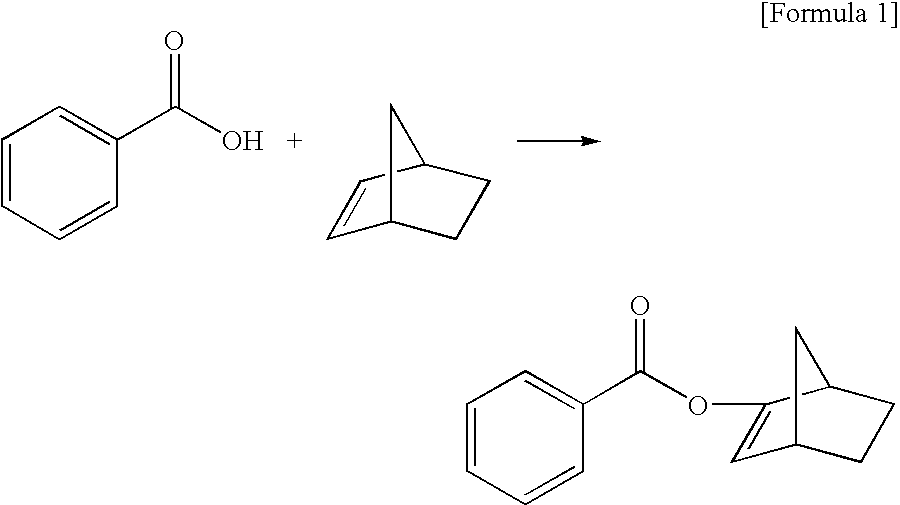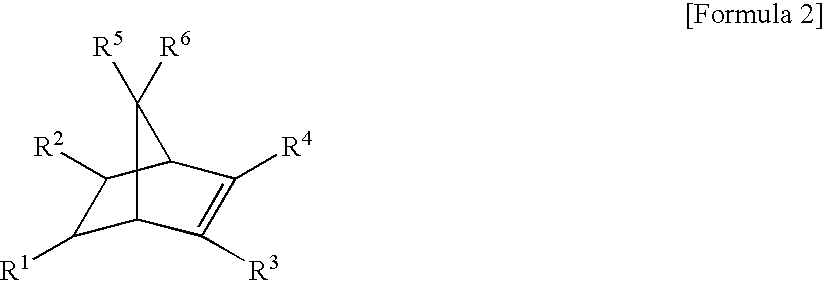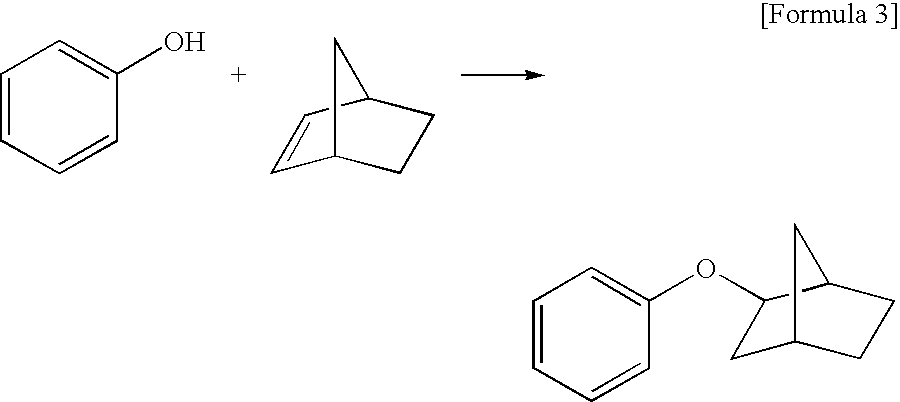Process for Production of Carboxylic Acid Ester or Ether Compound
a technology of ether compound and ester, which is applied in the preparation of ether, organic compound/hydride/coordination complex catalyst, physical/chemical process catalyst, etc., can solve the problems of low insufficient yield of ether compound, and reaction failure, etc., to achieve high yield, high handleability, and low cost
- Summary
- Abstract
- Description
- Claims
- Application Information
AI Technical Summary
Benefits of technology
Problems solved by technology
Method used
Image
Examples
example 1
[0052]Iron chloride (III) (0.2 mmol), silver trifluoromethanesulfonate (0.6 mmol) as a metal trifluoromethanesulfonate, and dibutylether (20 ml) were put in a reaction vessel of 100 ml in capacity with a stirring device, and then the resultant was heated up to 80° C. and caused to react for 2 hours. After cooling the resultant, acrylic acid (20 mmol) and norbornene (20 mmol) were added to the resultant, and the resultant was heated up to 80° C. and caused to react for 18 hours. The reaction mixture was cooled down and then analyzed by a gas chromatography. The yield of acrylic acid norbornyl was 98% by the standard of acrylic acid.
example 2
[0053]A reaction was carried out as in Example 1 except that, instead of the catalyst obtained by combining a metal compound and an acidic compound, Fe(Otf)3(III) (Otf: trifluoromethanesulfonate) (0.2 mmol) was used as a metal trifluoromethanesulfonate produced outside the reaction system in advance. The reaction mixture was cooled down and then analyzed by a gas chromatography. The yield of acrylic acid norbornyl was 98% by the standard of acrylic acid.
example 3
[0054]Iron chloride (III) (0.2 mmol), silver trifluoromethanesulfonate (0.6 mmol) as a metal trifluoromethanesulfonate, and dibutylether (20 ml) were put in a reaction vessel of 100 ml in capacity with a stirring device, and then the resultant was heated up to 80° C. and caused to react for 2 hours. After cooling the resultant, methacrylic acid (20 mmol) and norbornene (20 mmol) were added to the resultant, and the resultant was heated up to 80° C. and caused to react for 18 hours. The reaction mixture was cooled down and then analyzed by a gas chromatography. The yield of acrylic acid norbornyl was 96% by the standard of methacrylic acid.
PUM
 Login to View More
Login to View More Abstract
Description
Claims
Application Information
 Login to View More
Login to View More - R&D
- Intellectual Property
- Life Sciences
- Materials
- Tech Scout
- Unparalleled Data Quality
- Higher Quality Content
- 60% Fewer Hallucinations
Browse by: Latest US Patents, China's latest patents, Technical Efficacy Thesaurus, Application Domain, Technology Topic, Popular Technical Reports.
© 2025 PatSnap. All rights reserved.Legal|Privacy policy|Modern Slavery Act Transparency Statement|Sitemap|About US| Contact US: help@patsnap.com



